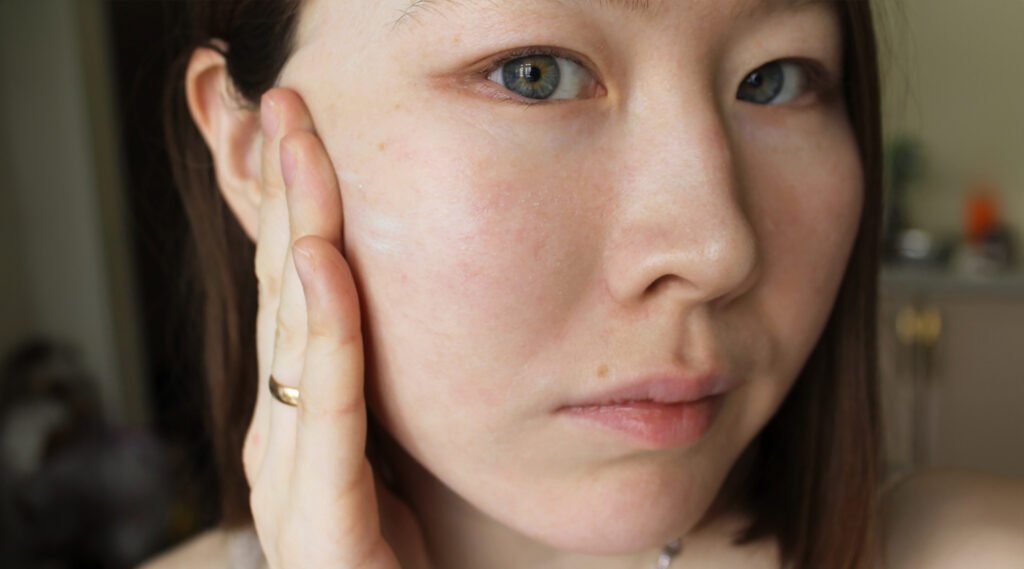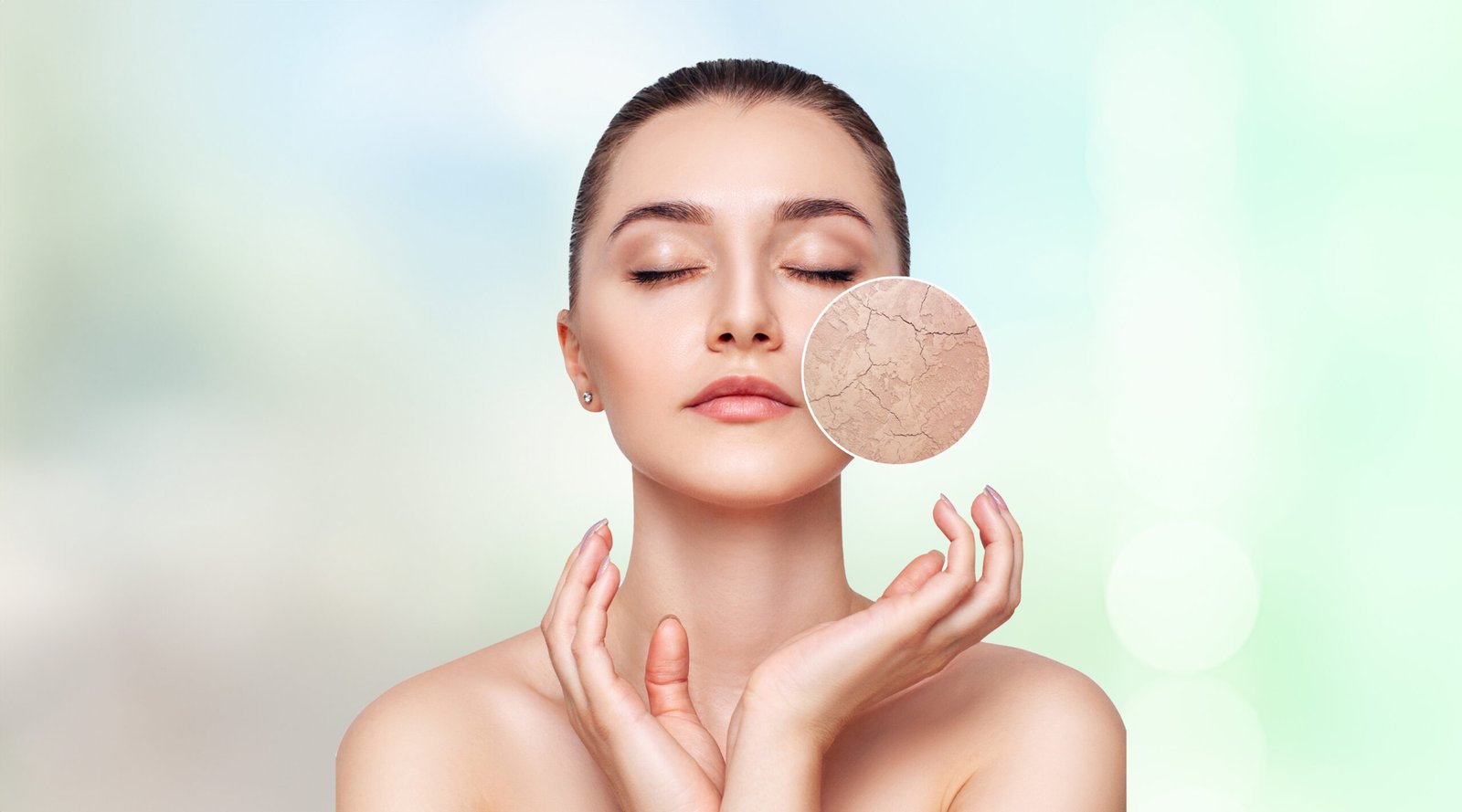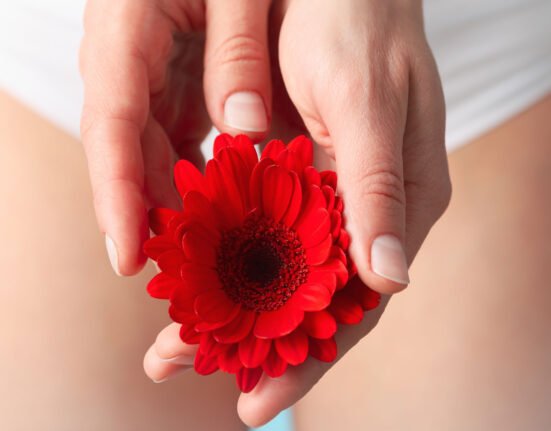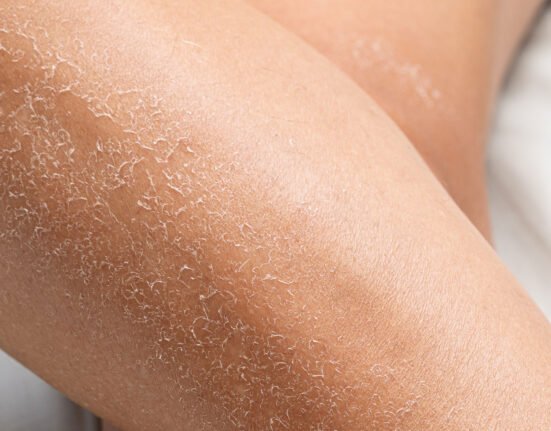If your skin feels tight, itchy, or looks dull, it doesn’t always mean it’s dry. You might be dealing with dehydrated skin.
Many people think dry skin and dehydrated skin are the same, but they are different conditions.
Dry skin is a genetic condition typically caused by low natural oil (sebum) production. It makes the skin appear flaky, rough, or lacking moisture.
In contrast, dehydrated skin is a temporary condition affecting anyone, even those with oily skin.
It occurs when the skin lacks water in the outermost layer (epidermis), leaving it feeling tight, dull, and sometimes overly sensitive.
How to Identify Dehydrated Skin

Dehydrated skin can have mild to more noticeable symptoms. One of the most common signs is a tight or stiff feeling, especially after cleansing. Your skin may also feel rough, itchy, and duller than usual.
Other signs to look out for:
- Fine lines, especially around expressive areas like the forehead and under the eyes.
- Dark circles and a sunken appearance under the eyes are due to volume loss.
- Increased sensitivity or frequent irritation.
- A tired, lacklustre look even after using brightening products.
Try gently pinching the skin on your arm. If it doesn’t bounce back quickly, that may be a sign your skin is dehydrated.
What Causes Dehydrated Skin?

Skin can lose moisture due to various environmental and lifestyle factors. Extreme weather—whether hot or cold—can strip away natural moisture.
Indoor air from air conditioning or heating systems can worsen the condition by drying out the skin.
Lifestyle habits also play a significant role. Not drinking enough water, excessive consumption of alcohol or caffeine, and a diet low in fruits and vegetables all contribute to poor skin hydration.
Even your skincare routine can be a culprit. Using harsh facial cleansers, over-exfoliating, or skipping moisturizer after washing your face can damage the skin barrier and lead to dehydration.
How to Restore Hydration to the Skin
Hydrating your skin goes beyond just applying moisturizer. It requires a holistic approach, treating both the inside and the outside.
1. Revamp Your Skincare Routine
- Use a gentle, non-stripping cleanser (preferably free of SLS).
- Avoid products with high alcohol content.
- Choose a hydrating serum with hyaluronic acid to draw water into the skin.
- Follow with a moisturizer that locks in hydration and strengthens the skin barrier, ideally with ingredients like ceramides or squalane.
To deeply hydrate and repair the skin barrier, include wund+™ Regeneration Cream in your nighttime routine.
It contains natural ingredients that support skin tissue repair and help retain optimal moisture.
Perfect for dry, rough, or redness-prone skin due to dehydration.
2. Hydrate from Within
- Drink at least eight glasses of water daily.
- Eat water-rich, antioxidant-packed foods like cucumber, watermelon, oranges, and strawberries
- Include healthy fats from sources like fish, avocado, and nuts to support the skin’s protective layer
3. Avoid Habits That Worsen Dehydration
- Cut back on alcohol and caffeine
- Avoid long, hot showers
- When outdoors in hot weather, protect your skin with proper clothing, a hat or umbrella, moisturizer, and sunscreen to prevent direct moisture loss from sun exposure.
Dehydrated skin isn’t permanent but can be uncomfortable and frustrating if left unaddressed.
Paying attention to your skin’s signals and adjusting your lifestyle and skincare routine can restore your skin’s natural hydration and bring back a smooth, healthy, glowing look.
Keep wund+™ Regeneration Cream on hand to help maintain optimal skin condition, especially during extreme weather or when your skin shows signs of stress.
References
Healthline. Accessed in 2025. Is My Skin Dehydrated?
webMD. Accessed in 2025. Signs of Poor Skin Hydration.








Leave feedback about this